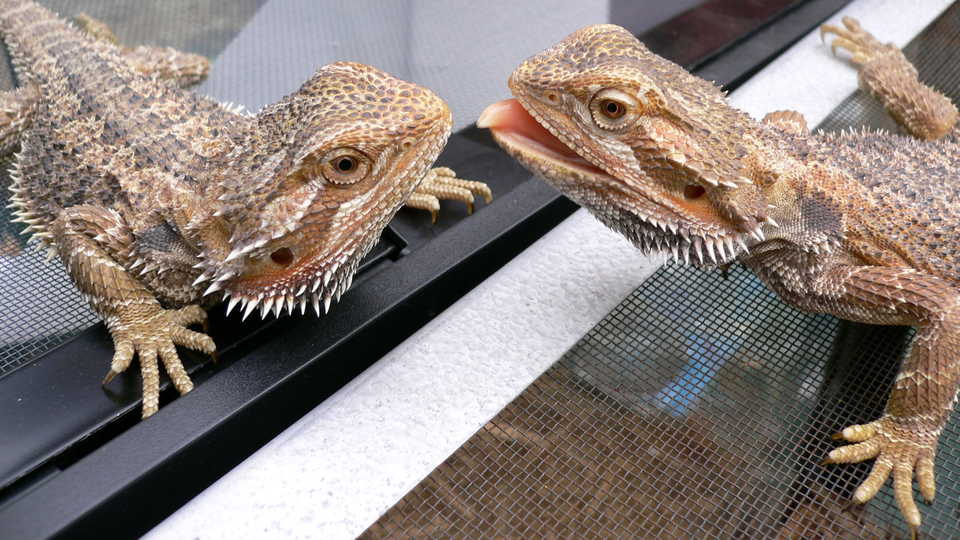Science News
Sex-Changing Reptiles Adapt to Warmer Temperatures

How might some reptiles combat climate change? Gender flexibility “could be a powerful and, until now, unappreciated weapon in the arsenal of evolutionary responses to an unpredictable climate,” according to a new study in Nature.
Um, excuse me—gender flexibility? That’s right: “Sex determination in animals is amazingly plastic,” the paper goes on to say. For some fish, amphibians, and reptiles, sex can be determined by temperature. While these animals’ eggs incubate, the climate surrounding them can influence the gender of the hatchlings.
Scientists have observed this with lizards in the lab, and now, a team of researchers report that they’ve witnessed temperature-dependent sex determination among populations of Australian bearded dragons (Pogona vitticeps) in the wild.
Using DNA sequencing technology, Clare Holleley, of the University of Canberra, and her colleagues studied 131 lizards within a fairly wide range in eastern Australia. They discovered 11 dragons in the northern-most—and warmest—region of the range that switched sexes before hatching. The dragons started out genetically male, but due to high temperatures as the eggs incubated, they switched to females.
These sex-changed females were completely fertile—in fact, more so than the genetically-determined females. The authors write, “Our extraordinary finding that sex-reversed females laid nearly twice as many eggs per year than normal… females of an equivalent age suggests an immediate fitness advantage…” This beneficial adaptation disappears, however, when the offspring hatch. The next generation of lizards has a higher propensity to switch genders in the eggs due to temperature—and most of these hatch as females.
So whether this ability will benefit the bearded dragons in the long run (with more offspring), or hurt them (not enough males to go around) is difficult to determine.
Let’s hope that gender flexibility proves to be a wise adaptation for these lizards as global temperatures rise.
Image Credit: Steve Jurvetson / Flickr